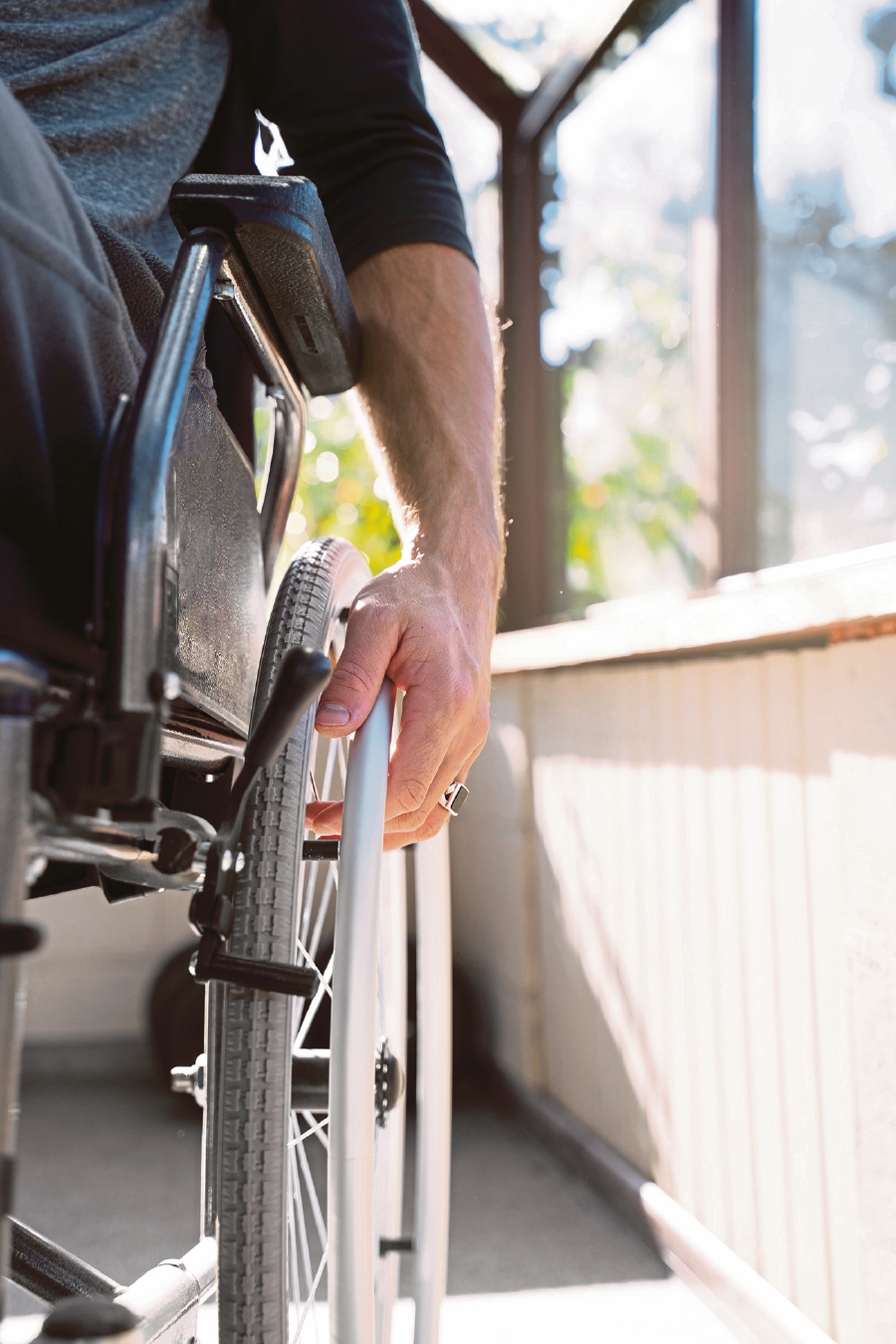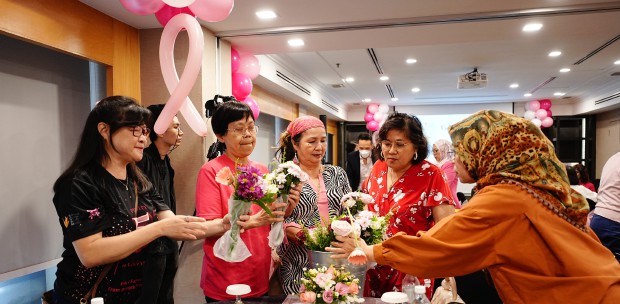IMAGINE falling into a sleep so deep that you don't wake up for more than a month, and when you finally do, you're bedridden for one and a half years.
Norzey Md Nata, 46, a mother of four, has been through experiences that most of us can't fathom.
It all started in 2011, when the assistant engineer woke up one day and found the vision in her left eye blurry. She was six months pregnant then.
"Initially, I was told that I may need glasses to correct my vision," says Norzey.
But eventually, she couldn't see at all in that eye. She was referred to a neurologist, who informed her that her symptoms were early signs of multiple sclerosis (MS).
Norzey was prescribed steroids and recovered but two months later, the symptoms appeared, this time in her right eye.
It proved to be the start of an incredibly challenging journey with MS. New symptoms appeared every two months. In 2013, new lesions were detected in her brain and she experienced the "deep sleep" episode.
It was an extremely difficult period for her family but Norzey's husband, Rizal Al-Amin Aminuddin, stood by her and took charge.
"I had never even heard of MS until then but I do recall the doctor telling me to brace myself for what was to come," says Rizal, an architectural designer/consultant and Multiple Sclerosis Society of Malaysia president.
For Norzey, Rizal's love and support has been invaluable. She still tears up when she speaks of his resilience and strength in being there for her and their children during their most challenging period.
Throughout Norzey's treatment and rehabilitation, Rizal was the one who managed their household and her treatment needs.
"At that time, awareness and understanding of MS was limited," says Rizal.
To accommodate her treatments, the family moved from Semenyih to Bangi, and Rizal made the decision to let go of his construction company to fully focus on Norzey's care.
She has been receiving disease-modifying therapy since 2016. She is now able to walk by herself for a certain distance and carry out simple household chores.

MS is a neurological condition that affects the brain and spinal cord (the central nervous system) which control all bodily functions.
Patients often exhibit a varying range of symptoms. In fact, rarely are the symptoms of two patients alike, and symptoms can range from mild to debilitating.
Blurred vision, dizziness, fatigue, numbness and tingling, muscle spasms, stiffness and limb weakness are some of the things that MS sufferers have to deal with.
It also includes mobility issues, speech difficulties, bowel and bladder problems and even difficulty swallowing.
Prevalence is lower in Asia compared with North America, Europe and parts of Australia, but symptoms suffered by patients are no less severe.
In Malaysia, it is listed as a rare disease with an estimated prevalence of six per 100,000 population.

UNDERSTANDING MS
MULTIPLE sclerosis (MS) is a lifelong incurable condition. It is five times more common in women than in men, says consultant neurologist Dr Low Soon Chai.
The disease is highly unpredictable. For some, it means going through phases of getting better (remission) and then experiencing setbacks (relapse), while for others, it follows a continuous worsening over time, he explains.
Nonetheless, people with all forms of MS experience disease activity, such as inflammation in the nervous system and permanent loss of nerve cells in the brain, even when their clinical symptoms aren't apparent or don't appear to be getting worse.
"The important goal when treating MS is to reduce disease activity as soon as possible to slow down disability progression. If not well managed, individuals with severe MS may develop irreversible or complete disability."

There are different types of MS, adds consultant neurologist Dr Chey Shin Yee. This includes relapsing-remitting MS (RRMS), which is the most common type.
Those with RRMS experience episodes of relapses of neurological symptoms followed by periods of improvement or remission.
An episode can last days or weeks and recovery can take weeks or months, depending on the symptoms, with some patients never fully recovering from their symptoms.
Over time, some individuals with RRMS may transition to secondary progressive MS (SPMS), where there is a gradual worsening of neurological function and disability accumulation, even without relapses. This transition typically occurs after many years of living with RRMS.
Primary progressive MS (PPMS), meanwhile, is a rarer form of the disease. Unlike RRMS, where individuals experience episodes of worsening symptoms followed by periods of remission, PPMS is characterised by a steady worsening of symptoms from the beginning, without distinct relapses or remissions.
"People with advanced MS may have to rely on mobility aids or become wheelchair bound, and they are unable to work and need carers to look after them," says Dr Chey.
This underscores the importance of seeking a consultation with a neurologist should symptoms suggestive of MS appear, paving the way for an accurate diagnosis and ruling out any other neurological condition that may mimic MS.





